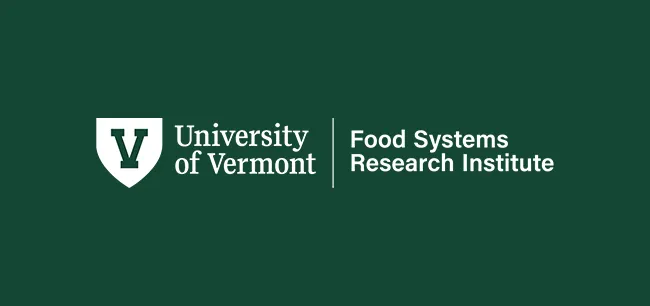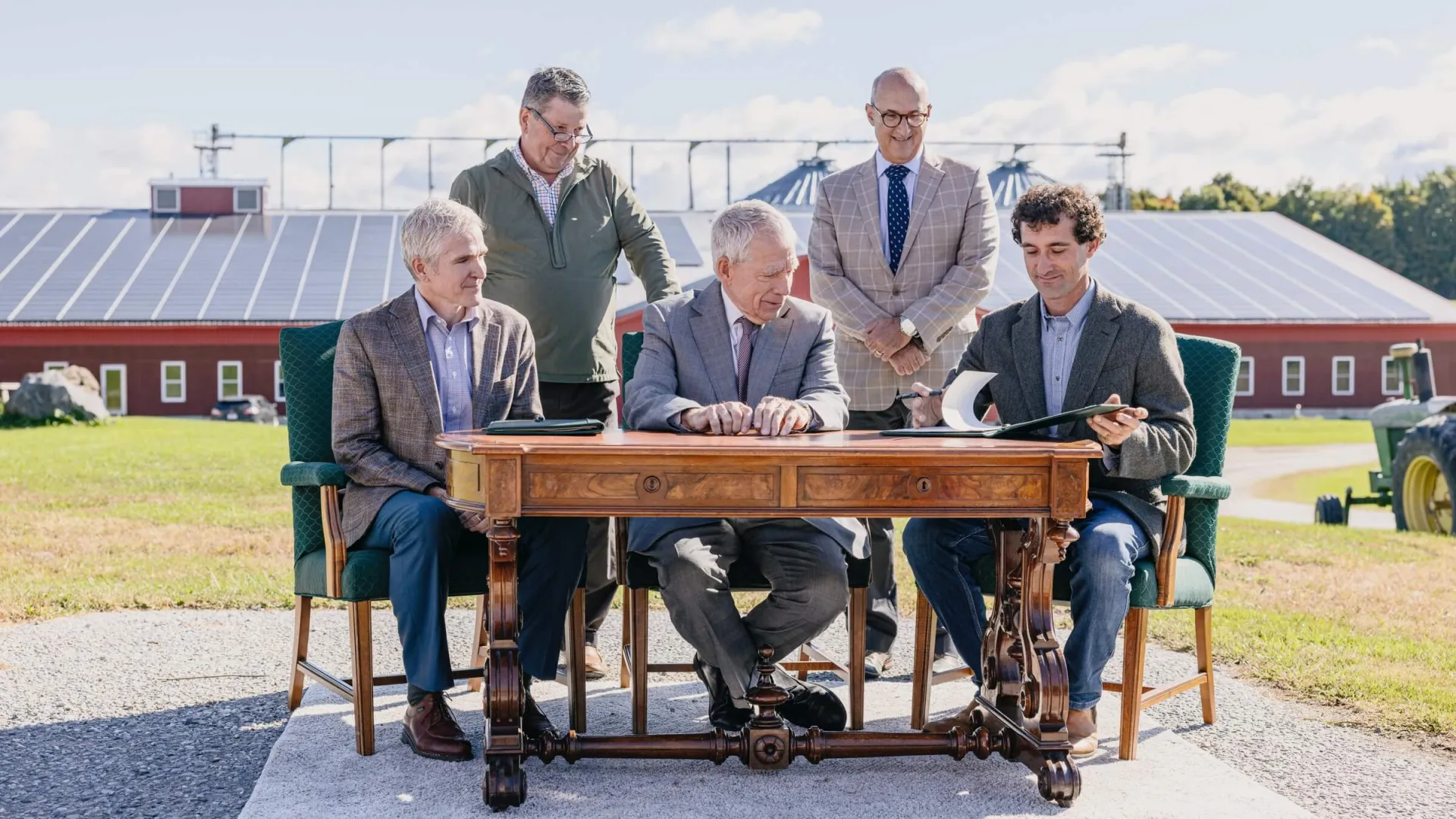The University of Vermont (UVM) has announced the launch of the Food Systems Research Institute (FSRI), a collaboration with the U.S. Department of Agriculture’s Agricultural Research Service (USDA-ARS). The FSRI will focus on long-term, transdisciplinary food systems research building off a decades-long commitment to food systems research at UVM.
The FSRI will build on the foundation of the UVM Food Systems Research Center (FSRC), established in 2019 through a Congressionally mandated allocation facilitated by Senator Patrick Leahy. The UVM Board of Trustees approved the formation of the FSRI on May 16th and the transition is official as of July 1st. Under the leadership of Director Dr. Polly Ericksen, the FSRI will expand its mission to support collaborative research that generates actionable insights for farmers, consumers, policymakers, and other food system stakeholders.
“The new FSRI is the natural evolution of the university’s longstanding commitments in food systems research,” Kirk Dombrowksi, the UVM Vice President for Research and Economic Development said. “With institute status, the FSRI will take on and answer ambitious, long-term research questions and deepen our impact across Vermont and the Northeast.”
UVM designated food systems as an institutional priority in 2010, and since then, the area of study has gained international recognition. As part of this commitment, UVM launched the Food Systems Initiative, established master’s and doctoral programs, and began hosting the annual Food Systems Research Summit - positioning UVM as a national leader in this emerging field.
A partnership between UVM, (USDA-ARS), and the FSRI, focuses on improving the performance of Northeastern food systems in terms of productivity, economic viability, environmental sustainability, nutritional value, and quality of life.
Food systems research spans numerous disciplines and with a $5.6 million budget, the FSRC has funded projects across UVM’s colleges and schools and supported initiatives such as the Proctor Maple Research Center, Climate Kitchen, and the Soil Health Research and Extension Center. To date, the FSRC has provided startup packages for five faculty members and supported 24 graduate fellows, 14 postdoctoral fellows, and 26 undergraduate summer fellows across a wide range of disciplines.
“The FSRI provides needed funding for researchers to do the critical, future-thinking research at Vermont’s land-grant institution,” said Amy Trubek, Director of the UVM Climate Kitchen. “Their support has enabled us to support inquiry-based research through cooking at the nexus of food and climate change.”
With its establishment as an institute under the Office of the Vice President for Research, the FSRI will gain greater capacity to collaborate with colleges and schools across campus and with peer institutions. It will also establish long-term projects, including field research at the Nordic Farm and the possible establishment of a Long-Term Agroecosystem Research (LTAR) site in Vermont.
The FSRI represents a new chapter in UVM’s leadership in food systems research—one that will continue to connect disciplines, produce relevant and useful research, and invest in the future of food systems.



